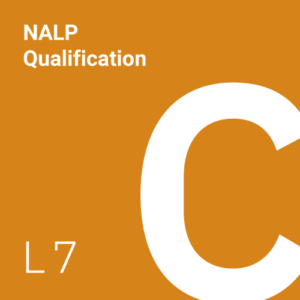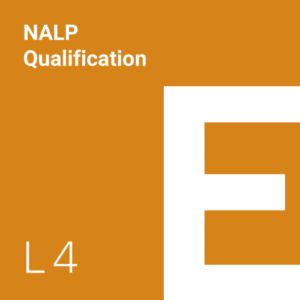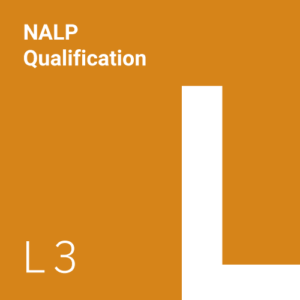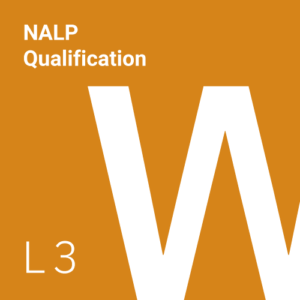- CPD Courses
- NALP Paralegal Qualifications
- Level 3 qualifications
- L3 Certificate for Paralegal Technicians
- L3 Introduction to Law for Paralegals
- L3 Legal Ethics and Responsibilities for Paralegals
- L3 Wills and Succession for Paralegals
- L3 Civil Litigation for Paralegals
- L3 Criminal Litigation for Paralegals
- L3 Commercial Law for Paralegals
- L3 Conveyancing for Paralegals
- L3 Employment Practice for Paralegals
- L3 Consumer Rights and Remedies for Paralegals
- Level 4 qualifications
- NEW Level 4 Certificate for Associate Paralegals
- L4 English Legal System – Single Unit
- L4 Contract Law – Single Unit
- L4 Law of Tort – Single Unit
- L4 Criminal Law – Single Subject
- L4 Wills, Intestacy & Family Provision – Single Unit
- L4 Civil Litigation – Single Unit
- L4 Criminal Practice – Single Unit
- L4 Matrimonial & Civil Partnerships – Single Unit
- L4 Conveyancing – Single Unit
- L4 Succession – Single Unit
- Level 5 Diploma for Senior Associate Paralegals
- Level 7 qualifications
- How to choose
- Comments from our Learners
- FAQ
- Recognition of prior learning
- FAQ
- About
- News
- Contact
Level 5 Diploma for Senior Associate Paralegals
This qualification is ideal for those who have previously studied law at Level 4.
The Level 5 Diploma for Senior Associate Paralegals is the latest paralegal qualification from NALP, building on the knowledge gained at Level 4.
This higher level will give you the opportunity to consider these subjects in greater detail and to develop new skills, enhancing your professional practice even further.
What's included
- All course material
- Assignment and test marking
- Full tutorial support
- 1 year NALP affiliate membership
- Certificate on completion
Entry requirements
One of the following, or equivalent, is required – if you are unsure, please contact us or phone 020 3745 5513.
- Satisfactory completion of NALP’s Level 4 Certificate for Associate Paralegals or equivalent
- Level 4 Cambridge Management and Leadership Diploma in Law
- Level 4 Trinity Open Learning Diploma in Law
- Level 4 OTHM Diploma in Law
- Level 4 ATHE Diploma in Law
- Level 4 LSIB Diploma in Law
- Satisfactory completion of Year 1 (Level 4 – Certificate in Higher Education) of law/law related undergraduate degree
- Non-UK Equivalent Qualifications. Please contact us to confirm eligibility.
Please Note: The NALP Level 5 Diploma for Senior Associate Paralegals is only available in English.
If your first language is not English then you must be able to provide evidence that your spoken and written command of the English Language is adequate for the qualification for which you have applied. e.g. IELTS Level 6, GCSE English.
You must also hold at least an Affiliate membership of NALP throughout your time studying for this qualification. You will be given one year’s free Affiliate membership when you enrol, but you will need to renew this membership, at your expense, if your studies continue past the first renewal date.
Assessment
This qualification is assessed in two parts. Multiple Choice Question Papers (accounting for 40% of the final mark) and written assignments (60%).
There are 4 MCQ Papers – 1 for each unit. We will inform you of the next available assessment slot.
There are 4 assignments – 1 for each unit. Assignments are undertaken on demand as you complete each unit. They need to be returned to the Training Centre within 3 weeks.
Assignments are marked and graded either with a Pass (45 – 64%), Merit (65 – 79%) or Distinction (80-100%).
Tutors are on hand to answer any queries that the learner may have and give unlimited help and guidance if there is anything that the learner may not fully understand with regard to the material.
Compulsory units
Aim of This Unit
This unit will:
- Provide you with the practical skills to be able to explain, advise and critically analyse the different types of business entity available in England and Wales
- Make you critically aware of the legal significance of the differences between these alternative types of business entity
- Provide awareness of the financial implications relating to these different types of business entity
- Enable you to demonstrate a detailed understanding and evidence of ability to apply the relevant legislation including the Companies Act, 2006.
Learning Outcomes
You will able to:
- Critically understand the various types of business organisation available within England and Wales and the legal significance of such alternatives
- Evidence a detailed understanding as to the creation and dissolution of partnerships
- Evaluate and critically analyse how a company is incorporated and the legal consequences of doing so in relation to: limited liability; the notion of separate legal personality and the ‘veil of incorporation’ and also critically appreciate the rationale for the ‘lifting’ of this veil
- Critically differentiate between different types of director and the legal significance and consequences for individuals exercising such a role
- Analyse the various reasons for and consequences of liquidation of companies
- Critically describe, evaluate and advise on the financial aspects of business
Aim of This Unit
This unit will provide you with:
- A sound understanding of EU and Public Law
- The ability to engage with substantive EU and Public Law practices, therefore allowing you to effectively contribute to the drafting of advice
- A contextual understanding of ethics and professional conduct
Learning Outcomes
You will be able to:
- Understand the fundamental nature and structure of Public Law and EU Law including sources of law and constitutional principles
- Analyse the separation of powers within the UK government and the impact of parliamentary sovereignty on the constitutional framework
- Understand the influence of the judiciary and judicial review in holding public bodies to account
- Examine the governance and accountability mechanisms of parliament, including the role of scrutiny committees and public enquiries
- Analyse the influence of EU Law on the UK constitution and the constitutional consequences of Brexit
- Understand the protection of human rights in the UK, including domestic law and the impact of international obligations
Aims of This Unit
This unit will help you to:
- Gain the knowledge, understanding and application of the legal framework in respect of relationship breakdowns
- Understand and apply this as a consequence of marriage, civil partnership or co-habitation
Learning Outcomes
You will be able to:
- Explain and identify what constitutes a marriage, a civil partnership or co-habitation
- Explain and appraise the law and process in relation to divorce and dissolution
- Explain and evaluate financial relief in divorce and co-habitees relationship breakdown
- Appraise and evaluate protective injunctions in respect of domestic abuse
- Identify and explain orders available in respect of children
- Evaluate non-court dispute resolution and funding within relationship breakdown
Aims of This Unit
This unit will provide you with the practical skills to:
- Be able to explain, advise and critically analyse the different types of estate in Land Law available in the UK
- Understand the legal significance of the differences between these different types of estate
- Demonstrate a detailed understanding and evidence of an ability to apply the relevant case law and legislation
- Develop a detailed understanding of the conveyancing process in England and Wales
- Be able to identify the strengths and weaknesses in the current conveyancing process and make appropriate recommendations for reform.
Learning Outcomes
You will be able to:
- Critically analyse and evaluate the key theories, principles, rules and concepts of Land Law
- Apply the principles, rules and concepts of Land Law to analyse and evaluate issues which relate to land law
- Apply the key principles, rules and concepts of conveyancing
- Demonstrate a detailed understanding of the key components and challenges of E-Conveyancing
- Demonstrate a detailed understanding of the ethical requirements in conveyancing
- Apply knowledge of ethical challenges and compliance strategies
Qualification
Level 5 Diploma for Senior Associate Paralegals
Compulsory units
- Land Law & Conveyancing
- Matrimonial & Civil Partnership Law
- Public & EU Law
- Business Law & Practice
Study type
Distance learning



